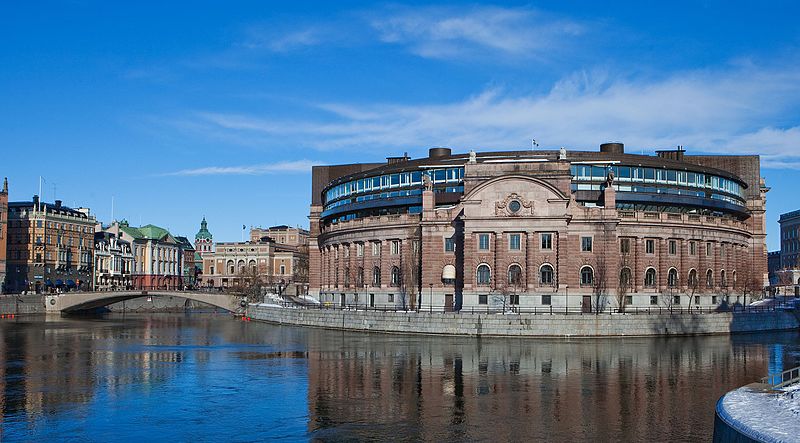
Sweden's government is unveiling a proposal to eliminate the cap on new nuclear plants, aiming to build 10 additional nuclear reactors by the late 2040s, according to the climate minister.
"The climate transition requires a doubling of the electricity production in the coming 20 years," stated Climate Minister Romina Pourmokhtari during a press conference.
Pourmokhtari emphasized that the government envisions deploying 10 new nuclear reactors equivalent to conventional ones in service during the 2030s and 2040s.
To facilitate this plan, the government intends to introduce legislation that removes the current ceiling of a maximum of 10 reactors and eliminates the requirement for new reactors to be constructed in the same locations as existing ones.
Pourmokhtari highlighted that these restrictions obstruct a modern perspective on nuclear power and stated that their removal would streamline the process of building new reactors.
A bill addressing these changes is set to be presented to the parliament in the upcoming autumn session.
In 1980, Sweden held a non-binding referendum to phase out nuclear power. Since then, the country has closed six out of its 12 reactors. The remaining reactors, located at three nuclear power plants, generate approximately 30% of the nation's electricity consumption today.
While Sweden seeks alternative energy sources to replace nuclear power, renewable energies have not yet fulfilled the nation's energy needs.
In 2016, a broad political consensus extended the lifespan of nuclear power, allowing for new reactors to replace aging ones as they reach the end of their operational period. Most of the reactors were commissioned in the 1970s and 1980s and are in need of modernization.
Prime Minister Ulf Kristersson's right-wing coalition government, which took office in late 2022, has signaled its intention to build new reactors. Additionally, the government has shifted Sweden's energy policy goal from 100% "renewable" energy to 100% "fossil-free" energy. Photo by Bengt Nyman, Wikimedia commons.



































